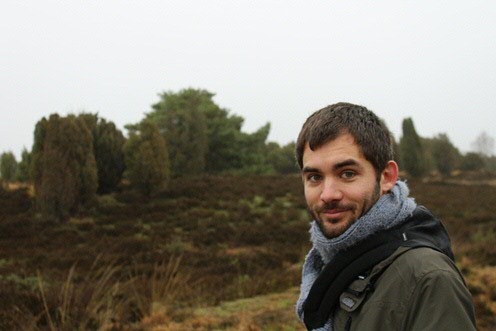The late Neolithisation of Northern Europe through the looking glass of MicroTRASH
From January 2021 onwards, Dr. Jos Kleijne will be working at the Groningen Institute of Archaeology (GIA), after having obtained a Marie Sklodowska Curie Individual Fellowship for his project MicroTRASH.
About the project MicroTRASH
Within this project, Kleijne is studying the late Neolithisation of Northern Europe. During the later Neolithic period (3500-2000 before Christ), major changes took place across Europe: an intensification of agricultural practices, the development of new burial rituals, and the migration of peoples, bringing new technologies and ideas across large distances. Such processes are less understood in the coastal regions along the North Sea and the Baltic. An important source of knowledge about the prehistoric communities from these coastal regions are the refuse heaps, so-called ‘middens’. Using micromorphological and biogeochemical (lipid biomarkers) methods in innovative ways, his research specifically targets these midden deposits, and provides a detailed and integrated picture of some of these coastal communities on both microscopic and molecular levels. At the Groningen Institute of Archaeology, Kleijne is supervised by Professors D.J. Huisman and D.C.M. Raemaekers. The biogeochemical analyses are taking place at the AMBI-Lab of Universidad de La Laguna on Tenerife, supervised by Dr. C. Mallol.
About dr. Jos Kleijne
Dr. Jos Kleijne (1987) studied prehistoric archaeology at Leiden University. Subsequently, he worked for three years at the Cultural Heritage Agency of the Netherlands as a specialist for later prehistory. Kleijne successfully defended his PhD in prehistoric archaeology at Kiel University in Germany in 2018, after which he continued working as a postdoc there, primarily focusing on Late Neolithic settlement and burial practices. In 2020, he obtained a MSCA-IF (Marie Sklodowska Curie Individual Fellowship) grant for his project MicroTRASH at University of Groningen, with a secondment at Universidad de la Laguna, on Tenerife. This project uses micromorphological and biogeochemical methods in understanding the refuse dumps that are found on settlements dating to the Neolithic along the North Sea and the Baltic coasts.

More news
-
14 February 2026
Tumor gone, but where are the words?
-
19 January 2026
Digitization can leave disadvantaged citizens in the lurch
